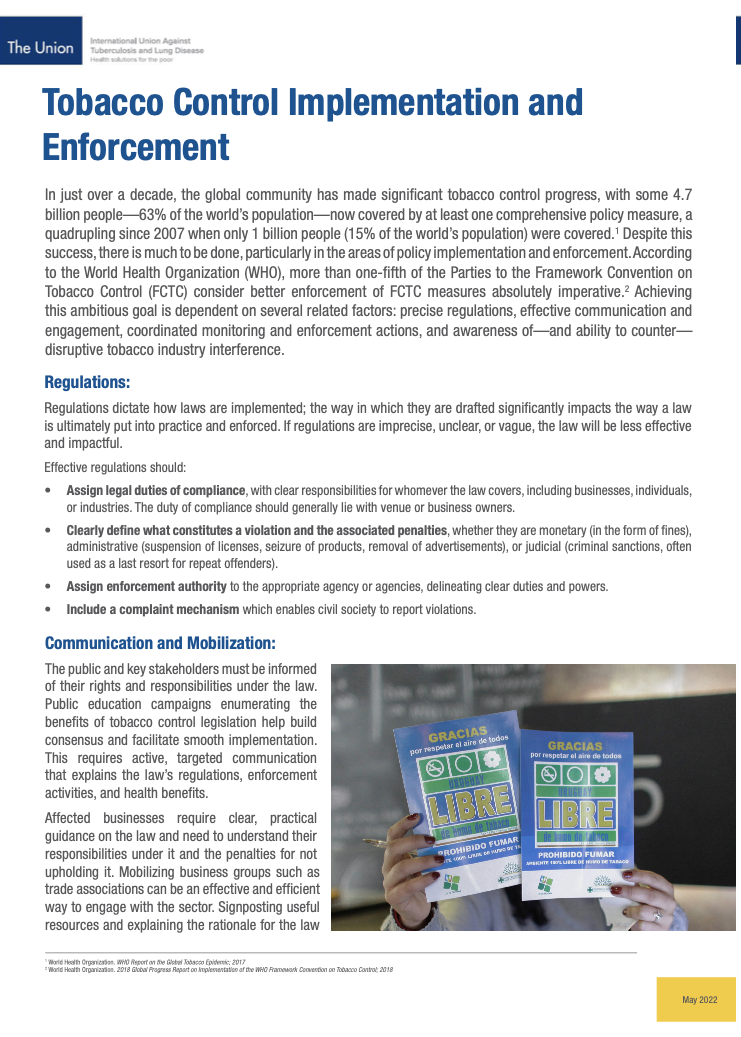According to the World Health Organization (WHO), more than one-fifth of the Parties to the Framework Convention on Tobacco Control (FCTC) consider better enforcement of FCTC measures absolutely imperative. Achieving this ambitious goal is dependent on several related factors: precise regulations, effective communication and engagement, coordinated monitoring and enforcement actions, and awareness of—and ability to counter—disruptive tobacco industry interference.
Recent Abstracts
Effects of Heat on Early Childhood Development
Blood Lead Surveillance of Children and Pregnant Women in Tamil Nadu, India
Sportswashing through Media: Coca-Cola’s Olympic Play – A Research Report
What’s in Our Food?
Mais Dados Mais Saúde
More Data, Better Health – Primary Health Care
Mais Dados Mais Saúde: Experiência De Discriminação Cotidiana Pela População Brasileira
More Data, Better Health – Experience of everyday Discrimination by the Brazilian population
Monitoramento de Estratégias pelo Fim da Violência contra Crianças e Adolescentes
Harm Reduction: The Neglected Pillar of US Drug Policy
